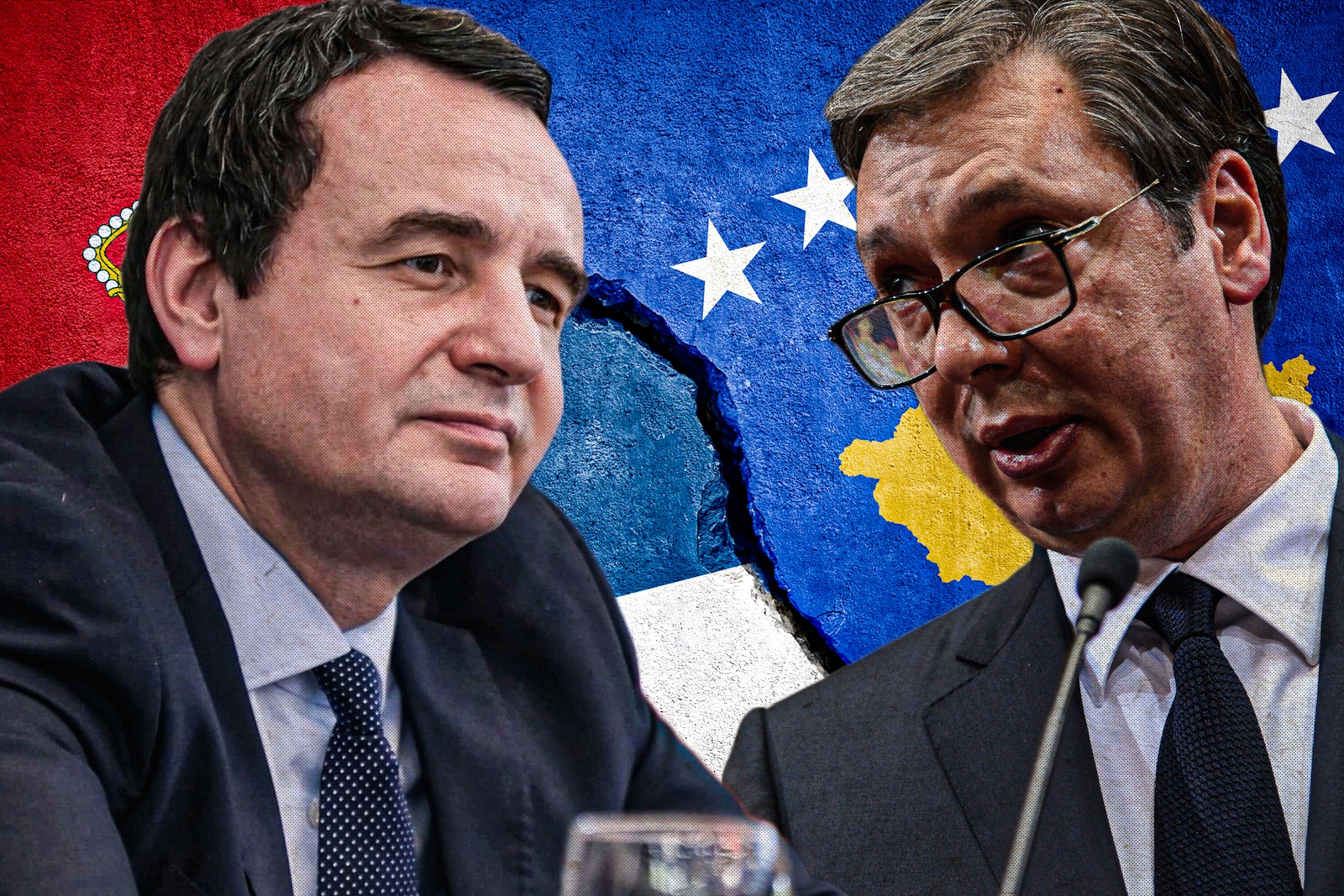
The Serbia-Kosovo Dispute is Long Overdue for Detente
It has been 14 years since Kosovo declared independence from Serbia, but now, with 50,000 ethnic Serbs living in northern Kosovo, heightened tensions threaten to blow up the still-shaky relationship between the two countries. Thursday’s summit mediated by the European Union in Brussels is seen as an effort to avoid a conflict, but both ethnic Serbs and Albanians living in Kosovo have expressed little hope of the talks succeeding.
Serbian President Aleksandar Vučić and Kosovo Prime Minister Albin Kurti accepted an invitation from Josep Borrell, the EU’s High Representative, for a meeting on Thursday where they also met with NATO chief Jens Stoltenberg and Miroslav Lajčák, the EU special representative for the Belgrade-Pristina Dialogue and Western Balkans.
The current issue surrounds license plates and identification cards. Violence erupted last week over plans by the government in Pristina to require people entering Kosovo with Serbian IDs to replace them with a temporary document during their stay in the country, and a plan for Serbian drivers to display Kosovo number plates on their vehicles, according to a report by Al Jazeera.
However, under pressure from both the United States and the European Union, Kurti took steps to avoid an all-out conflagration and agreed to postpone the license plates rule until Sept. 1, while NATO peacekeepers oversaw the removal of roadblocks set up by the Serbs. Ethnic Serbs make up approximately five percent of Kosovo’s 1.8 million, mainly ethnic Albanian population.
Kosovo and Serbia have signed numerous agreements on border crossings and car plates in 2011, 2013, and 2016, and the European Union has been trying to mediate between Belgrade and Pristina for at least a decade.
According to Emerging Europe, while EU-led talks between Kosovo and Serbia began in 2011, they have so far failed to achieve any normalisation of relations. And while Kosovo is recognised by about 100 states, including the U.S. and most EU countries, Serbia, and its allies, including Russia, refuse to do so.
Earlier this week, Stoltenberg said the alliance will increase its peacekeeping force in Kosovo if there is an escalation of tensions with neighbouring Serbia. “We have now a significant mission, a military presence in Kosovo close to 4,000 troops,” he said at a news conference after talks with Aleksandar Vučić in Brussels.
Turkish news site Anadolu Agency quoted Dritero Arifi, a political science professor, who said the EU “is not ready for such a serious meeting.” He said Borrell “is organizing the meeting only to somehow create the impression that peace and negotiations are continuing and that the two countries have a good relationship.”
Arifi agreed with the prevalent assessment that relations between the two countries are not good and therefore expects little progress to be made. “I do not expect anything from this meeting. If something positive is to happen, there may be acceptance in principle to settle the issue of missing persons of the Kosovo War.”
However, other experts believe this war of words is merely part of a campaign to de-legitimize the other side.
According to an analysis by Milica Stojanovic and Xhorxhina Bami in Balkan Insight, “The war of words between Serbia and Kosovo is reaching fever pitch, but far from heralding outright conflict, it is more likely part of a battle for favour on the diplomatic stage.”
That battle, while seen by some as intractable, has still seen some progress.
In its recent report on Kosovo, the European Parliament noted that in June, Lajčák “announced a roadmap, agreed in Brussels by negotiators for Kosovo and Serbia, for the supply of electricity to Serb-run municipalities in northern Kosovo. The deal, part of the EU-facilitated dialogue that aims to normalise relations between Belgrade and Pristina, implements agreements already reached in 2013 and 2015 and is considered by some analysts as the first practical achievement since 2020.”
This first practical achievement, while comparatively small, is still a major step toward mutual recognition and a long overdue detente. Former Kosovan Foreign Minister Petrit Selimi noted in an article for the Atlantic Council, “in the medium to long term, it’s clear that something must immediately change in the dialogue between Kosovo and Serbia.” He quotes Karen Donfried, the U.S. Assistant Secretary of State for European and Eurasian Affairs, as having recently stated: “The status quo is unsustainable; not only does it hinder Kosovo and Serbia’s European futures, but it benefits the Kremlin.”
Selimi called on the EU and the United States to be “more forceful in compelling Serbia to once and for all choose its geopolitical orientation rather than attempting to play both sides.”
He added that Brussels and Washington “must change their formula of ineffective, last-minute shuttle diplomacy to solve crises. The pay-off—lasting peace in the Balkans—is far greater than the political capital needed to finally close this fractious chapter between Kosovo and Serbia.”
Russia-backed Serbia may now feel empowered, but this is likely just a temporary and false sense of security as Russia loses ground in Ukraine and loses prestige on the world stage. Serbia and Kosovo could reach an agreeable solution once the regional and geopolitical dynamics change. It is likely just a matter of time.
